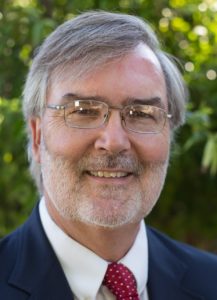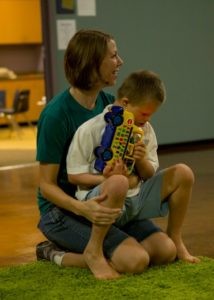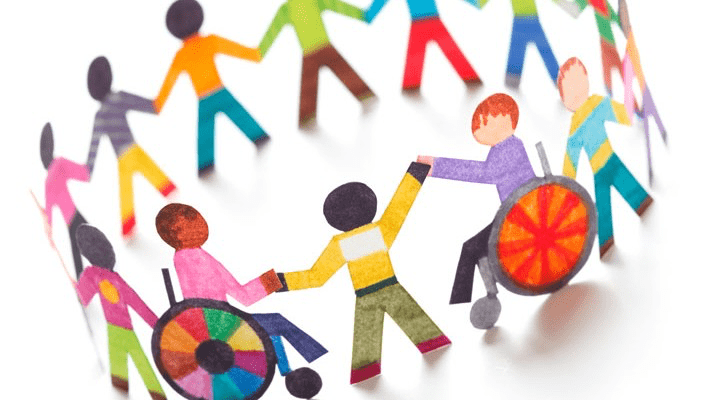Huge strides have been made in the past few decades for people with disabilities, especially in the areas of building accessibility and access to education, jobs and health care. One area of opportunity remains involvement and inclusion in church.
Consider: One in four individuals in the United States has a disability, yet, according to research by Vanderbilt University professor Erik Carter and his colleagues:
- Only 27% of young people with disabilities attend a youth group or small group.
- More than half (52%) of adults with intellectual disabilities didn’t attend a religious service in the prior month.
- Nearly three-quarters of teenagers with special needs who want to be involved in a youth group don’t have an opportunity to do so.
- And 56% of parents kept their child with disabilities from participating in religious activities because their churches weren’t able to support their needs.
Why are churches so behind the curve in this area? The reasons are diverse and wide-ranging.
“Many pastors don’t realize how far off they are,” said Jeff McNair, a professor of education and director of the master of arts program in disability studies at California Baptist University. “I’ve even heard people say, ‘Well, this church down the street offers that ministry, so we don’t have to.’”
“I’ve even heard people say, ‘Well, this church down the street offers that ministry, so we don’t have to.’”
“People see it as special or challenging. They say, ‘We’re called to serve the homeless or serve refugees — we aren’t called to serve special needs,’” said Shannon Pugh, director of the special needs ministry at Irving Bible Church, located in the Dallas-Fort Worth Metroplex.
McNair attributes part of the passing the buck to a lack of education — which starts well before a pastor enters the pulpit.

Jeff McNair
“You can probably count on one hand and not fill the hand how many seminaries address this,” McNair said. “To encourage Christian colleges and seminaries to develop this kind of thinking and teaching more would be brilliant. Oftentimes, the bottleneck to churches working in this area is the pastors — because the pastors haven’t been trained and they think it’s not important.”
“I help a lot of churches,” said Pugh, who started a networking group for churches in the DFW area to share ideas for addressing special needs. “The biggest question I get asked is how to handle behavior. The next is recruiting volunteers.”
“People think that whoever is leading it has to be specially qualified, that they have to be trained in special education or have a relative with a special need. That’s a huge misconception,” she said.
McNair has his students ask their pastors whether people with disabilities are a priority, and if so, what’s the evidence.
“A lot of pastors say, ‘We love everyone the same and all are welcome,’” McNair reported. “And that sounds very good, but some people with disabilities don’t have a way to get to church.”
McNair believes it’s important to remember that Jesus’ commandment was to “go and make disciples,” not “wait for the disciples to come to me.”
“People don’t understand how bad we are at this,” he said.
“If I’m supposed to love my neighbor, I can’t do that if my neighbor isn’t present.”
Reimagining church
If churches have so many opportunities to improve, how can they get better?
“It starts with presence,” McNair said. “If I’m supposed to love my neighbor, I can’t do that if my neighbor isn’t present. One thing I’d expect to see is people with a variety of characteristics in every aspect of the church.”
“We have to let go of the notion that church has to look a certain way — that if you’re in worship, you stay in your seat and you’re quiet,” Pugh said. “I don’t know that it’s really what it’s supposed to look like.”
McNair agreed.
“If my building isn’t accessible, I build a ramp,” he said. “But if someone has a social deficit, what do you do? We have to make a change, and one way is to create social ramps, which kind of change the social environment so people with social deficits can access it.”
“Instead of saying, ‘I don’t understand your purpose,’ maybe I need to create a platform so your gifting can come out,” McNair suggested. “And if I don’t see your gifting, maybe that’s my fault.”
 At IBC, Pugh said, they’ve explored how to have someone who can’t speak share their testimony, or how to include individuals with special needs in baptism. These are important things to think through “even if you don’t have a good answer,” she said.
At IBC, Pugh said, they’ve explored how to have someone who can’t speak share their testimony, or how to include individuals with special needs in baptism. These are important things to think through “even if you don’t have a good answer,” she said.
Have a plan
Doing this work means “serving kids, teens and adults who have aggressive behavior — who throw toys, who scream, who leave the room when they aren’t supposed to,” Pugh said. “The reality is, you can’t just get a kid in there and let them hit everyone and not have a plan for that. But it’s easier to make a plan for that than you think.”
A good place to start is with respite programs, where individuals with special needs can get free care for a few hours each month. That allows parents to take time for themselves to go to dinner or run errands, and to seek out community with other parents in similar circumstances.
“If you have one family, start there,” Pugh said. “That is a baby step, but it’s something.” Then, you’ll be more prepared when a family with special needs visits on Sunday morning.
“These families are at home believing church is not an option,” Pugh said. “And you need to be ready for them.”
Related articles:
At this church, “special needs” are nothing out of the ordinary
As Americans with Disabilities Act turns 30, barriers remain
This story was made possible by gifts to the Mark Wingfield Fund for Interpretive Journalism.

